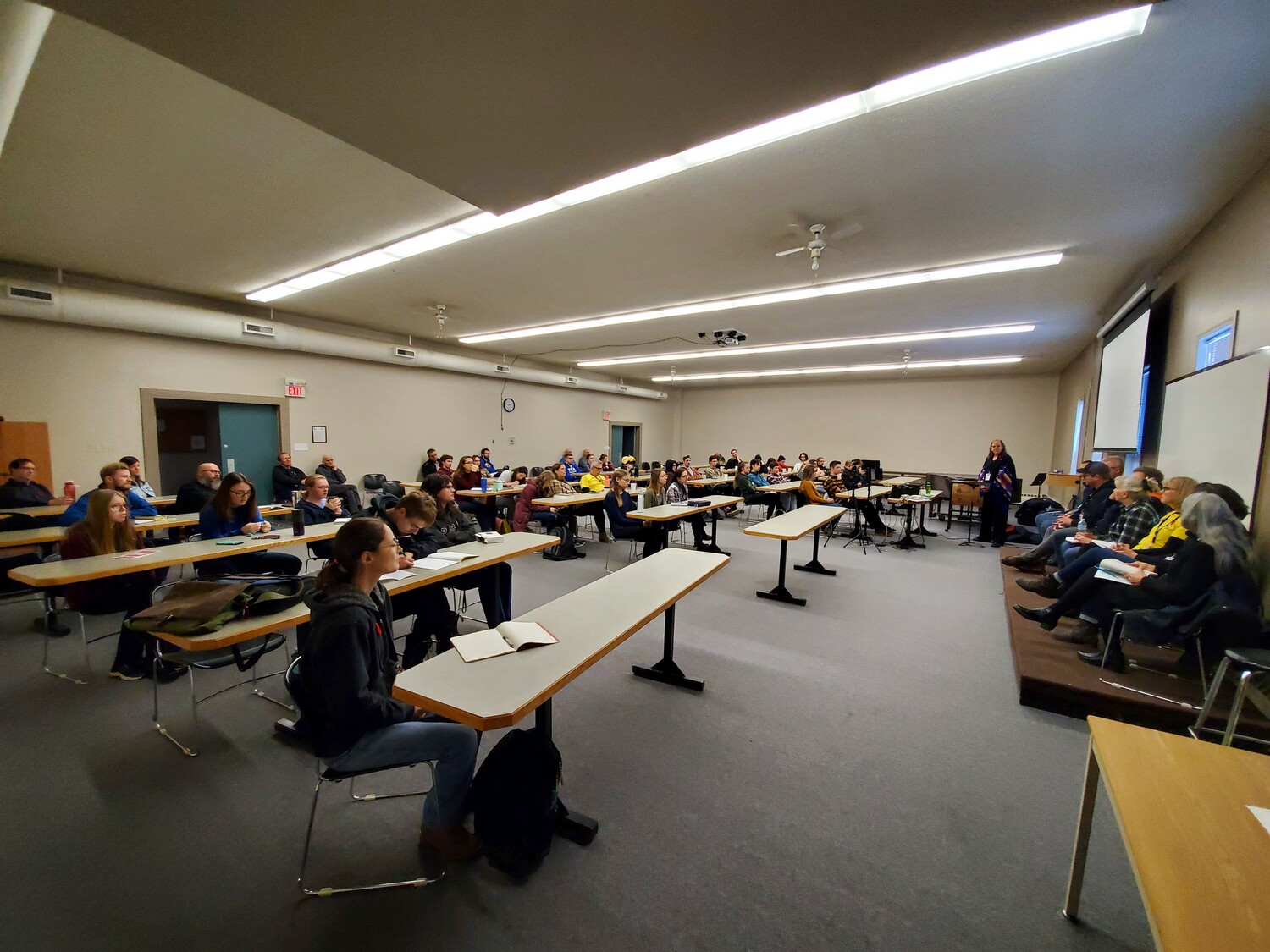Stories are powerful. Far more than just entertainment, a story wraps truth in a compelling, non-threatening package that can slip past preconceived notions and beliefs and change the heart and mind. When Scripture is shared as a story, people see how it relates to their everyday lives, addressing their deepest felt needs.
For the last 25 years, Kathy, along with her husband and their two children, has served language groups in sensitive contexts* through translation and oral storytelling. She was first introduced to chronological Bible storying in 2005 and now serves as a Scripture engagement consultant.
“Almost all the unreached peoples of the world are oral communicators,” says Kathy. “It’s such a pleasure to work in this field. . . . When you go out and tell Bible stories, no one ever responds negatively.
“Even if the story contradicts what they have been taught and their belief system, people still respond positively.”
Why Oral Stories?
How does oral storytelling directly relate to the work of Bible translation? Many of the communities where Kathy works prominently feature oral storytelling. In fact, even people who are literate often prefer listening to Scripture stories rather than reading.
“Many educated people in this country don’t have books in their homes or spend much time reading,” says Kathy. “We have one friend who is a college graduate and works as a school teacher. She had been given a Bible and flipped through it, but it wasn’t until she started listening to it that she was drawn to the Word and then became a Christian.”
“Even Jesus told stories and parables and used poetry and object lessons. He taught in ways that were easy for oral communicators to understand and remember.”
“Literacy programs are crucial,” adds Kathy, “but they will ultimately reach only a small percentage of people in these communities. Oral stories can not only give people an appetite to learn how to read, but they also empower oral communicators to share the gospel.”
Oral stories can also go where the printed Word cannot.
“We don’t want to just translate Scripture and then leave it in a warehouse or on a website for people to stumble upon. We need to find ways for people to engage with Scripture, to have life-changing encounters with it.”
Stories Change Worldviews
Kathy works with language groups to help develop sets of oral chronological Scripture stories. She also runs workshops, and trains and advises teams in their own language projects.
Kathy and her team are working on adding Old Testament stories to an existing set of 25. They have finished sets from the lives of Abraham and Job and are working on a set from the life of Joseph.
“The people here know the names of these characters very well, but they don’t know the Bible’s stories about them,” Kathy said. “Their idea of God is not someone who makes promises and keeps them, who cares about ordinary people, people who aren’t important in the world’s eyes.
“They don’t realize He has a plan for the world.”
* Countries or regions where Christian ministry can be risky because of the religious or political climate.
Story courtesy of Wycliffe U.S.-wycliffe.org/blog
VIDEO: Wycliffe is a member of the International Orality Network. In this short video, an ION trainer shares oral Bible stories with women in Kolkata, India.
